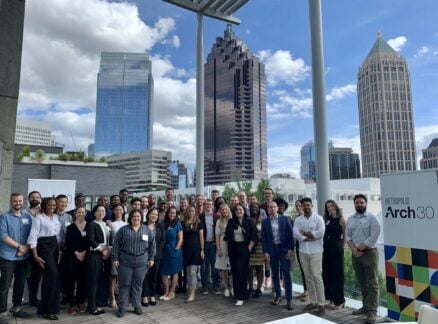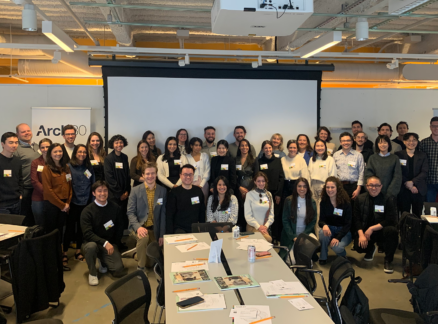October 29, 2009
Graduate Programs in Sustainability Catching On
The City College of New York (CCNY) announced this afternoon that it will offer a new interdisciplinary master’s program called “Sustainability in the Urban Environment.” The 31-course program, which begins next spring, will incorporate architecture, engineering, and science into the curriculum, and will lead to a Master’s of Science in Sustainability. (Read more about it […]
The City College of New York (CCNY) announced this afternoon that it will offer a new interdisciplinary master’s program called “Sustainability in the Urban Environment.” The 31-course program, which begins next spring, will incorporate architecture, engineering, and science into the curriculum, and will lead to a Master’s of Science in Sustainability. (Read more about it here.)
Having noticed similar initiatives from other universities in recent months, I got to wondering: How many graduate programs in sustainability are there, anyway?
Quite a few. According to the Association for the Advancement of Sustainability in Higher Education, there are currently 13 interdisciplinary master’s programs and four interdisciplinary doctoral programs in sustainability worldwide. And that list doesn’t include the numerous discipline-specific graduate programs that offer a sustainable focus (e.g. sustainable agriculture, sustainable design, environmental law, etc.)
(Undergrads have a lot to choose from, too–there are bachelor’s programs in Sustainable Development, Sustainable Practice, Sustainable Living, and Sustainable Management, among others.)
CCNY’s new program, however, should be unique. “None of the masters-level programs in sustainability currently listed on the Association for Advancement of Sustainability in Higher Education website integrate the disciplines of architecture, engineering and science,” said the school of engineering’s Dr. Latif Jiji in a press release. If that is indeed the case, CCNY’s program should generate valuable new expertise for the design professions.
rban and natural systems, environmental economics and industrial ecology. It draws upon approaches such as ‘whole systems thinking’ and life cycle analysis to understand and evaluate complex urban eco-systems.





